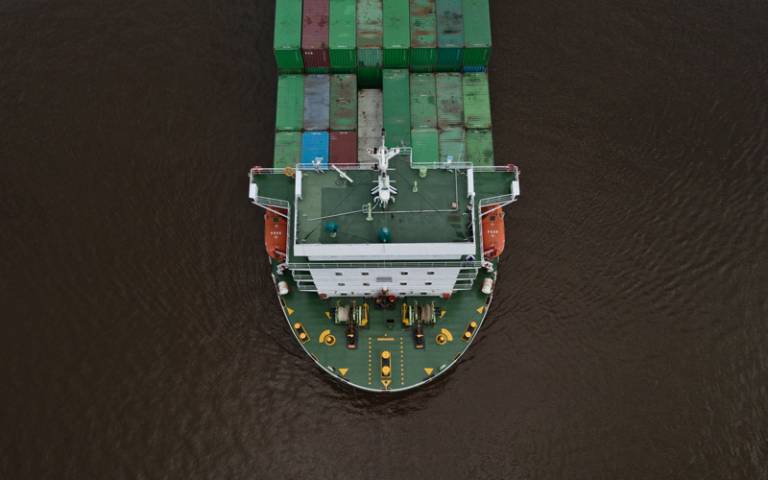Governments have greater responsibility for shipping emissions than previously thought, study finds
5 August 2020
Greenhouse gas emissions are increasing under current shipping policy finds the Fourth International Maritime Organisation Greenhouse Gas Study, contributed to by UCL’s Energy Institute’s shipping team through UMAS.

Greenhouse emissions of global shipping are increasing, and expected to continue to increase, under current policy, according to 4th International Maritime Organisation’s (IMO) Greenhouse Gas (GHG) Study.
Using advance methods the new study has estimated that 30% of total shipping emissions fall directly within national government responsibility, twice the amount previously estimated. If the study’s findings and trends continue they to set a significant challenge for the sector is to contribute to achieving the Paris Agreement Climate goals both for domestic governments, and collectively at the International Maritime Organisation. The study shows strong, clear policy action must be taken for the sector to urgently transition away from the use of fossil fuels.
According to international guidelines, only shipping emissions that occur when ships sail on a voyage between two countries are the responsibility of the UN’s International Maritime Organisation. When any ship sails between two ports in the same country, the emissions are the responsibility of that country – and should be accounted for and have reductions managed within that country’s emissions inventory and commitments, including in its reports to the UNFCCC regarding commitments made in the Paris Agreement (Nationally Determined Contribution). Until now only a few countries had investigated their shipping emissions at this level of detail, and the IMO had had to make simplified estimates that have been shown to underestimate the level of emissions that count as ‘domestic’ shipping and fall within the responsibilities of individual governments to manage. The study produced many further insights into the recent trends in shipping emissions and the drivers of these trends.
Tristan Smith, Reader at UCL Energy Institute, Director of UMAS, and contributor to the study said:
“You have to start by getting GHG accountancy right, and this has proved a perennial problem for the shipping sector. Most countries, including the UK, continue to count shipping emissions inaccurately e.g. on the basis of fuel sold to shipping as opposed to actual voyages and activity. Very few countries use IPCC aligned methods, or include shipping in their NDC – it’s a poorly-assessed, under-examined and often-ignored sector for many governments. Poor accountancy creates persistent underestimation of the magnitude of responsibility and role that should be taken nationally to decarbonise shipping, and the ability to realise opportunities – shipping is a key part of the future hydrogen/ammonia economy and needs to be in national hydrogen strategies. Hopefully this study will encourage countries to look again, and bring shipping firmly into their national GHG policy, hydrogen strategies and action.”
International remote collaboration

The multi-disciplinary team at UMAS in the UCL Energy institute which led the Third IMO GHG Study in 2014 also led the work on emissions inventories in the Fourth IMO GHG Study. With the additional challenge of Covid-19 disrupting normal collaborative working, the team remotely managed the task, balanced with additional challenges from homeworking and caring responsibilities. The detailed inventory of emissions produced for the period 2012-2018, was made possible due to the ever-improving quality of satellite observations of shipping activity, which in this study came from exactEarth.
The total study was the effort of a collaboration between 9 organisations from across 6 countries. The complete consortium, led by CE Delft, included:
- ClassNK
- Dalian Maritime University
- Fudan University
- Institute of Economic Research Foundation, University of São Paulo
- Manchester Metropolitan University
- National Maritime Research Institute, National Institute of Maritime, Port and Aviation Technology
- Purdue University
- The International Council on Clean Transportation
- UMAS, University College London
Find out more
- Full story on UCL News
- More about the study on the UMAS website
- Read the full report
- See key points for policy makers
 Close
Close

